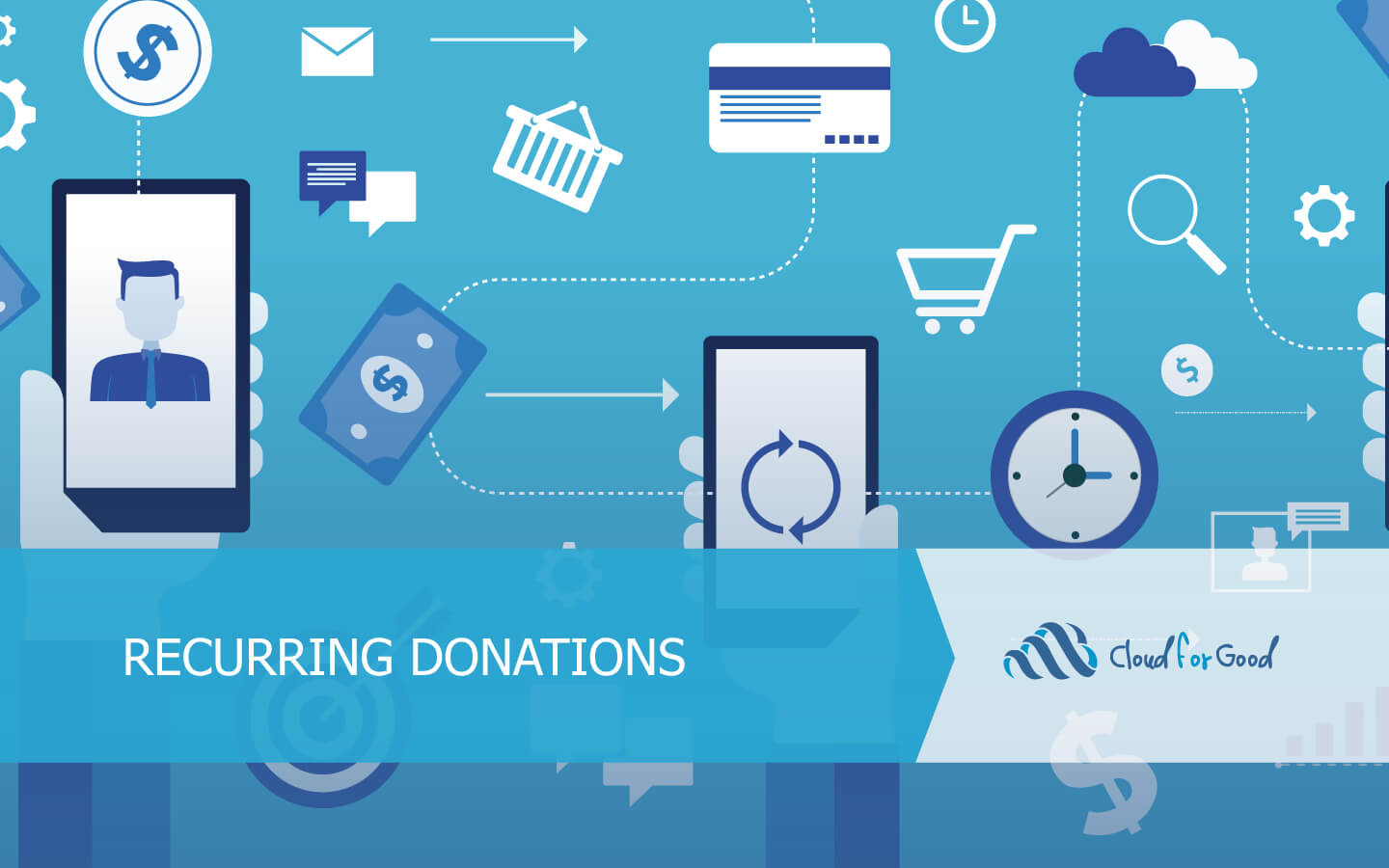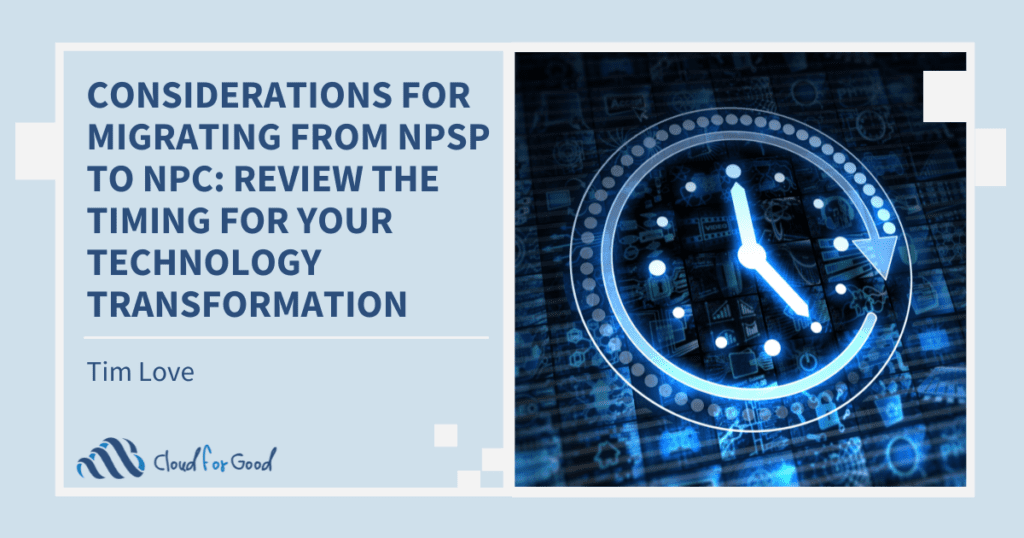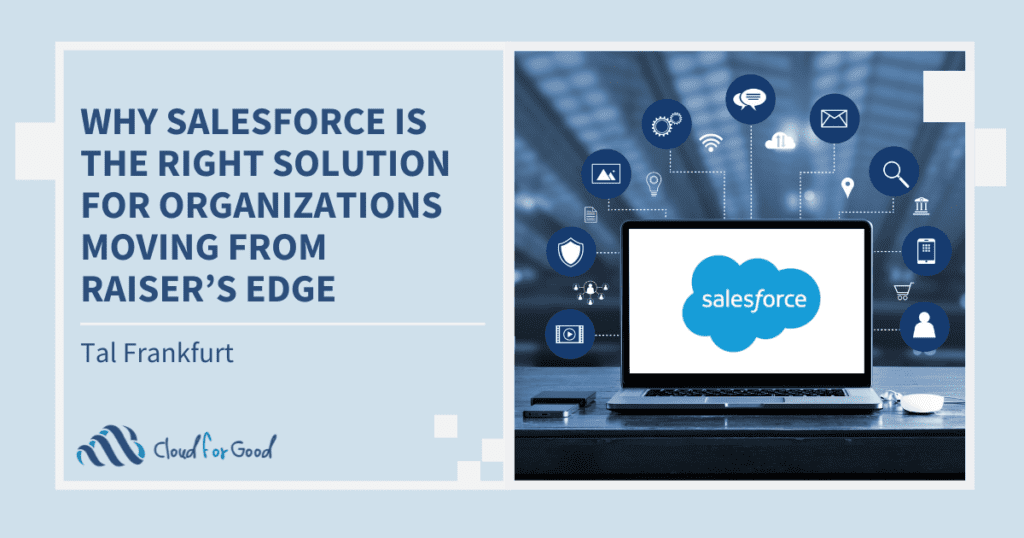It has been said that the best things come in small packages and the same can be said of small donations. In particular, ones that are automatically repeated on a monthly basis. One time, larger donations are certainly exciting and can be impactful, but it is the small recurring donations that are there for the long haul.
What exactly is a recurring donation?
It is exactly what you would expect it to be – a recurring donation is one that is automatically received each month (occasionally can be quarterly or bi-monthly) and can either be open-ended or fixed-length in duration. A recurring donor is one of the most valuable assets your organization can have. Typically a donor will sign up for recurring donations with a limited number of organizations, so the fact that they choose you means you are doing something right! Now that we know what recurring donations are, let’s look at why they are important and should not be overlooked.
Why do recurring donations matter?
There are a number of reasons why recurring donations matter and why the donors that provide them are a great asset to your organization. Recurring donations mean:
- There is no need to process checks or consistently ask donors for more money.
- A convenience for your supporters to give (this is a big one). As a donor, having money automatically coming out of your account each month or charged to your credit card without having to lift a finger is an incredibly easy process. Also, think about the different groups that give to your organization. Millenials, in particular, are a donor segment that every non-profit should be looking to engage. In the age of technology, convenience is what this group have come to expect and the convenience of recurring donations will appeal to them.
- Supporter’s donations aren’t one big hit to their pocketbook at the end of the year. By making these smaller donations throughout the year, it can fit better into their budget and become more manageable.
- Recurring donors are more likely to become more engaged with your organization, often attending events, volunteering and giving additional gifts.
- Increased revenue! Small, recurring gifts can add up over time (the average monthly recurring gift is $52. Over 1 year, that is a $624 donation!).
- Less time spent on your administrative efforts by collecting these monthly gifts online.
- You have a predictable, steady stream of income and support that you can rely on which is good for budgeting.
- Decrease operating costs (marketing spend and administrative expenses). It takes more resources and money to recruit new donors as opposed to engaging with your current donors. Anywhere you can cut down on costs while still getting value is a plus for nonprofits, especially smaller ones with limited resources.
- More donations. A report from Classy states that recurring donors who give on a monthly basis donate 440 percent more to charity over their lifetime than one-time donors. They found that the average lifetime financial return from a recurring donor is $795.62, compared with $147.23 from a one-time donor.
What are some best practices when setting up recurring donations for your organization?
- Use a reliable solution for your online donation processing (this is so important!). There are many online donation tools available to you, but make sure you assess all of them to choose the one that makes the most sense for your organization and business needs. A few things to look for include a platform that is customizable so that you can add in your own branding and language – you’ll have more success with donors if they recognize who they are giving to as opposed to using a generic one.
- Make sure your donation button on your website is displayed front and center and included in all of your online outreach. Also, ensure the recurring donation option is available on your online donation form (or consider making it your website’s default option). Without the option visible, the likelihood that a donor will reach out to inquire about how they can sign up for recurring donations is fairly slim.
- This may sound simple but make sure your appeals always ask donors to consider giving a monthly contribution.
- Report on the impact that your recurring donations have made to your organization and its mission by regularly sharing stories, updates, and results. People love to see where their money is going and how it can make a difference so share away.
- Create a special thank you program for your recurring donors (maybe they receive recognition on your website or have special perks such as first selection on event tickets). Make them feel special!
- Consider using a credit card updater service to update invalid credit card data.
- Create campaigns specific to acquiring recurring donations.
- Last, but certainly not least, look to Salesforce and the Nonprofit Success Pack to help you track and manage your recurring donations.
How the NPSP supports your recurring donations
The Nonprofit Success Pack (NPSP) has a recurring donation component that allows you to track and manage recurring donations – both open-ended and fixed length. A few of the data points you can track for your recurring donations include naming the donation, amount, duration, donation date, installment period (monthly, quarterly etc.), total paid and more.
Recurring donations should be celebrated! Not just celebrated because of the dollar value but because they represent loyalty and commitment. It’s about finding and having donors that want to join your community, support your mission and are more than likely going to stick around longer than a one-time engagement.
For additional information, you may also enjoy:





